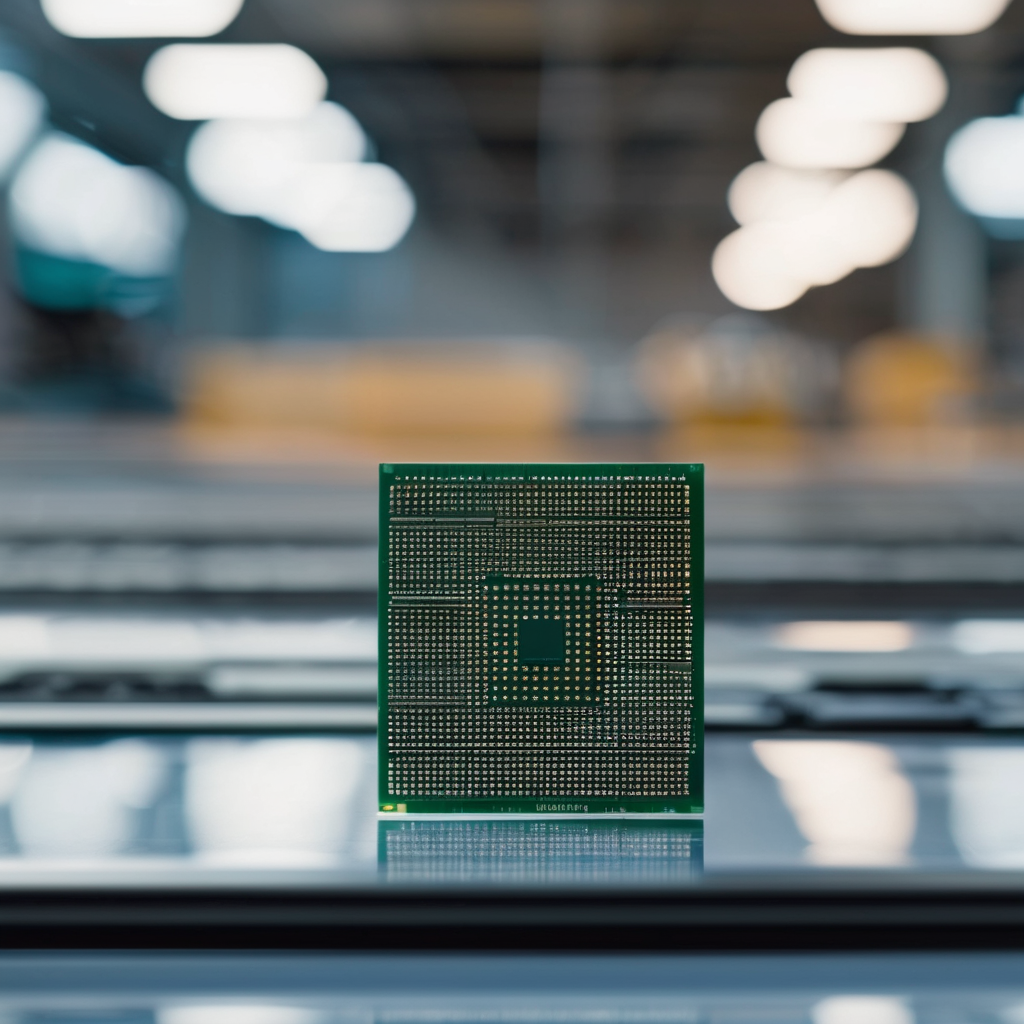Intel and AMD, longstanding competitors in the semiconductor industry, are reportedly in preliminary discussions about a potential partnership that could see AMD’s chips manufactured at Intel Foundry. Although no formal agreement has been reached yet, this development signals a significant shift in the relationship between the two tech giants.
For many years, AMD has relied heavily on Taiwan Semiconductor Manufacturing Company (TSMC) for its manufacturing needs, establishing itself as one of TSMC’s most loyal clients. However, growing pressures related to supply chain stability, geopolitical uncertainties, and increased demand for domestic manufacturing have pushed AMD to explore diversification options. The U.S. government has called for a minimum of 50% of all chips intended for American markets to be produced domestically, making it imperative for AMD to secure alternative manufacturing sources.
Intel, on the other hand, has faced challenges with its foundry services since their launch. Despite committing to a substantial partnership with Nvidia recently, Intel Foundry Services (IFS) has struggled to sign major clients and achieve volume production on their advanced nodes. Currently, IFS is operating at a significant loss, emphasizing the urgent need for Intel to attract external business to turn its fortunes around.
For AMD, the attraction toward Intel Foundry is clear. While TSMC remains the leader in advanced manufacturing technologies, constraints in production capacity and the need for U.S.-based production options have made alternatives necessary. With TSMC’s facilities in Arizona unlikely to produce AMD’s high-end products before 2027, collaboration with Intel may provide a pragmatic solution.
Intel’s technology, while not matching TSMC’s in state-of-the-art density and performance, offers potential for supporting chips and other components that do not require the most sophisticated nodes. This flexibility could allow AMD to utilize Intel’s capabilities for certain aspects of its production while still relying on TSMC for its most advanced chips.
The partnership prospects also present a vital opportunity for Intel to gain external validation for its foundry initiatives. Securing even a limited deal with AMD would signal to the semiconductor industry that Intel can be a trustworthy manufacturing partner, which could attract additional customers. Moreover, approval and commitment from the U.S. government for Intel’s facilities hinge upon demonstrating viable demand, of which an AMD partnership could play a pivotal role.
While the discussions are exploratory, they stress the importance for both companies to weigh their options carefully. AMD has the pressing need to solidify its manufacturing capacity without losing its leverage with TSMC, while Intel aims to ensure its operations are sustainable and competitive.
As both companies navigate these considerations, the possibility of an agreement remains uncertain. However, the evolving dynamic suggests that Intel’s efforts to reposition its foundry services could be gaining momentum. The industry is undoubtedly watching closely, as this partnership could reshape market strategies for both Intel and AMD moving forward.
